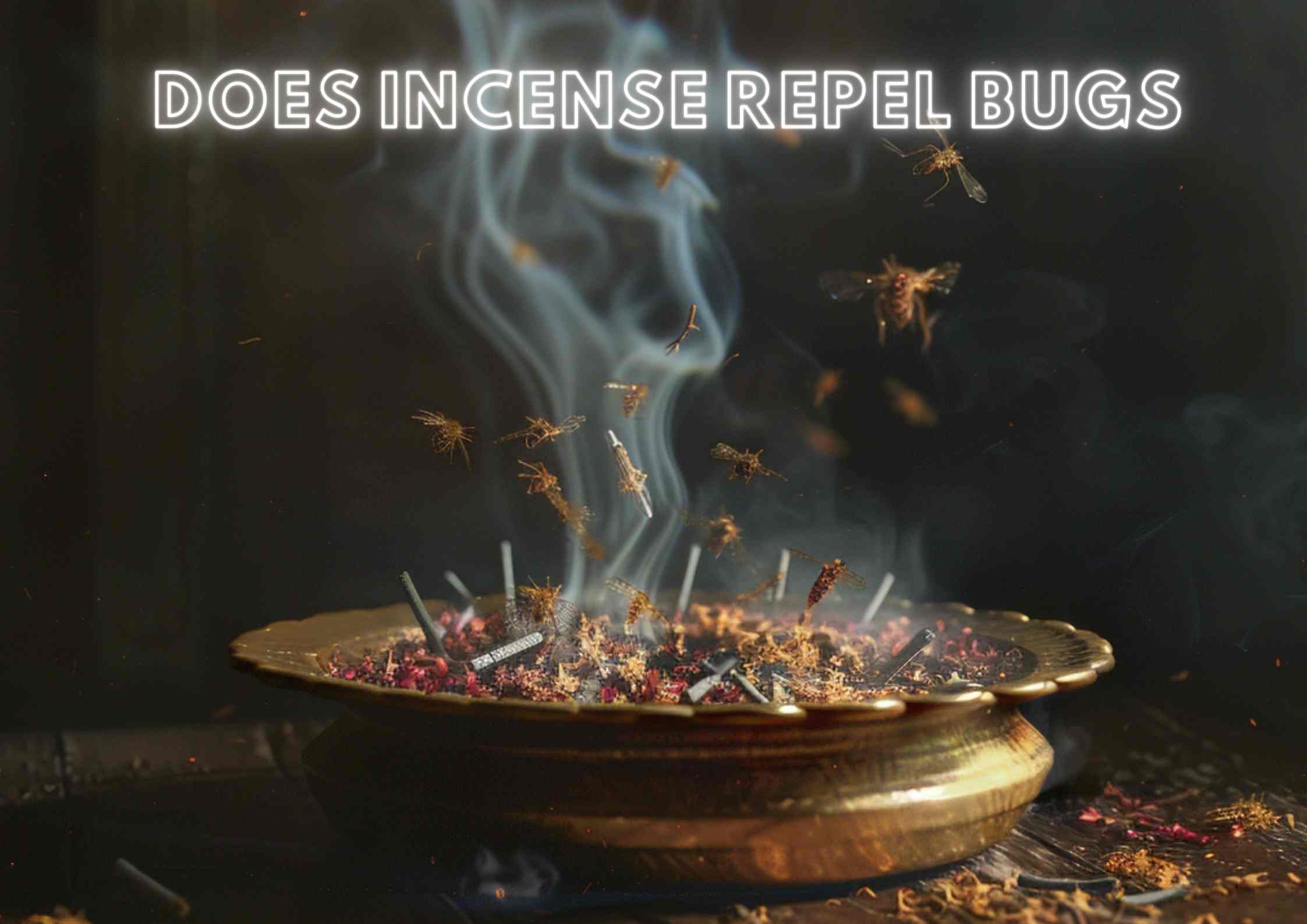Why does incense give me a headache
Mar 04 , 2024
Incense is cherished for its soothing scents, yet sometimes it leads to an unwelcome headache. Research indicates that the smoke from burning incense can contain harmful substances like benzene and formaldehyde.
This article will delve into common reasons behind incense-induced headaches and offer alternative ways to enjoy tranquillity without smoke. Keep reading to uncover how you can continue your calming rituals, pain-free.
Key Takeaways - why does incense give me a headache
- Incense smoke has chemicals like benzene and formaldehyde which can cause headaches.
- Headaches from incense could be due to allergies, sensitivity to scents or smoke, and poor indoor air flow.
- Being near nature, meditation, sound therapy, journaling, and using candles or essential oils are good ways to feel calm without incense.
Possible Reasons Why Incense Gives You a Headache
Incense can give you a headache due to chemical irritants, allergies, smoke sensitivity, and poor air circulation. These factors can contribute to the discomfort experienced when burning incense.
Chemical Irritants
Many incense sticks contain chemicals that can irritate your nose, throat and lungs. These irritants come from the smoke when you burn incense. The smoke has tiny particles that you breathe in.
Some of these chemicals are harmful and can cause headaches or even make you feel sick like when someone is poisoned.
Your body might react to the scents added to incense sticks as well. Manufacturers often use synthetic fragrances to create a strong smell. People sensitive to scents may get sinus headaches or migraines from these artificial smells.
If burning incense makes your head hurt, consider if allergies could be affecting you next.
Allergies
Allergies to incense can trigger headaches and other discomforts. Some individuals may be sensitive or allergic to specific ingredients in the incense, such as natural resins, plant extracts, or synthetic fragrances.
These allergens can provoke symptoms like headache, nausea, and respiratory issues upon exposure. Incense burning indoors aggravates air quality and exposes those with fragrance sensitivity to potential allergic reactions due to prolonged smoke exposure.
Sensitivity to fragrances is common and can lead to adverse effects on health.
Smoke Sensitivity
If you experience headaches or other symptoms when exposed to incense, it could be due to smoke sensitivity. Smoke contains particulate matter and chemical irritants that can trigger reactions in some people.
This can lead to respiratory irritation, headaches, dizziness, and other discomforting symptoms. Addressing smoke sensitivity may involve reducing exposure to incense and opting for alternative methods such as natural air purification, using unscented candles or essential oils.
Moving on to "Poor Air Circulation," let's explore how indoor air quality affects our well-being.
Poor Air Circulation
Poor air circulation can trap and concentrate incense smoke, increasing the likelihood of inhaling irritants that may lead to headaches. Stagnant air allows these particles to linger in a concentrated area, intensifying their impact and potentially causing discomfort.
Improving ventilation by opening windows or using fans can help disperse the smoke and reduce its concentration, promoting better indoor air quality.
Insufficient airflow can heighten exposure to airborne irritants from incense combustion, contributing to potential health concerns. This heightened concentration of pollutants may exacerbate symptoms such as headaches, emphasising the importance of adequate ventilation for reducing indoor air pollution levels.

Alternative Methods for Experiencing Spiritual Meaning without Using Incense
Engage in meditation, connect with nature, try sound therapy, journal your thoughts, or create rituals with candles or essential oils. There are many ways to experience spiritual meaning without using incense! Read on to find out more about these alternatives.
Meditation
Engage in meditation as a calming and centring practice. Focus on deep breathing and mindfulness to reduce stress. Create a serene environment using scents like lavender or chamomile for relaxation.
Connect with your inner self through tranquil music or nature sounds. Position yourself comfortably, close your eyes, and let go of any tension in your body. Embrace the present moment and release negative thoughts as you meditate.
Incorporate meditation into your daily routine for improved mental clarity and emotional well-being. This holistic approach can help alleviate headaches while promoting overall wellness.
Nature Connection
Engage in nature connection to uplift your spirits without relying on incense. Spend time outdoors, take a walk in the park, or sit near a garden. Listen to the calming sounds of birds chirping and leaves rustling.
Breathe in the fresh air and absorb the natural scents around you - this can have a soothing effect on your mind and body.
Immerse yourself in nature by going for hikes, picnics, or simply finding a quiet spot to observe the beauty of trees, flowers, and wildlife. By doing so, you can create a serene environment that promotes relaxation and spiritual fulfilment without any risk of triggering headaches from incense or other synthetic scents like perfumes or air fresheners.
Sound Therapy
Sound therapy is a powerful way to connect with your inner self and find peace. Using soothing sounds like nature sounds, calming music, or white noise can help create a relaxing environment that promotes mental clarity and relaxation.
Whether it's the gentle rustling of leaves or the rhythmic sound of ocean waves, sound therapy can provide an alternative means for experiencing spiritual meaning without relying on incense.
This method allows you to immerse yourself in calming auditory experiences, which can be just as effective for promoting mindfulness and tranquillity.
Journaling
Try journaling to explore your thoughts and emotions. This practice can help you connect with your spiritual side without using incense. Use scented oils or candles while writing to create a calming atmosphere.
Reflect on your experiences and feelings, allowing yourself to delve deeper into the spiritual meaning behind them.
Record your observations and insights about nature in a journal, fostering a stronger connection with the natural world. By engaging in regular journaling sessions, you can develop a meaningful spiritual practice that doesn't trigger headaches or adverse health effects associated with incense use.
Rituals with Candles or Essential Oils
Transitioning from journaling to rituals with candles or essential oils, you can create a serene atmosphere by lighting scented candles or using essential oils in your spiritual practices.
Enhance your environment with the calming scents of lavender, chamomile, or sandalwood for relaxation and focus during meditation. Consider the warming glow of a flickering flame or the soothing aromas to elevate your connection with nature and promote emotional well-being.
Whether it's for mindfulness exercises or setting intentions, incorporating these elements into your rituals can provide a sensory experience that uplifts and centres your spirit.
Conclusion
In conclusion, incense can cause headaches due to chemical irritants, allergies, and smoke sensitivity. Explore alternative methods such as meditation, nature connection, sound therapy, journaling, or rituals with candles or essential oils for spiritual experiences without the health hazards of incense.
Experimenting with these alternatives helps avoid poisoning symptoms and promotes overall well-being. Embrace healthier options to enhance your spiritual practices without risking your health.
FAQs
1. Can burning incense be a health hazard?
Yes, burning incense can sometimes be a health hazard because the smoke may contain harmful particles that can cause headaches or other poisoning symptoms.
2. Why does incense give some people headaches?
Incense might give you a headache due to the chemicals and scents released into the air when it burns which can trigger your body's pain response.
3. What should I do if I get a headache from incense?
If you get a headache after burning incense, go to a well-ventilated area with fresh air and drink plenty of water; if your headache persists seek medical advice.
4. How can I avoid getting headaches from incense?
To avoid headaches, choose natural incenses with fewer chemicals, burn them in ventilated spaces, and limit exposure time to reduce any potential health hazards.





